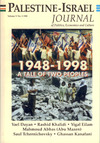To the thunder of bells* a voice calls for
blood!
Bom-Bom! Bom-Bom! Bom-Bom!
The town was stormed! Haidamaks*
Raped, slaughtered the folk! Everyone
Carried the booty in sacks.
Two days corpses rolled in the town,
On the third, they threw them in a hole:
They fouled the synagogue (with feces of swine
They filthied each Torah scroll)*
Over it they built a steeple white and tall,
A choir of bells they hung there,
When the priest rose to prayer
They would answer him:
Bim-Bom! Bim-Bom!
One of the "Thirty-Six Just"* heard,
Alone on an autumn night he appeared:
He came, said the prayer for the dead.*
"Be magnified, be sanctified!"....
But finishing - there was no one,
Not a man, only the night asleep -
Groaned the big bell in the tall steeple
And the small bells answered then
"Amen!
Amen! Amen!"
The priest heard, he hurried there,
Crowd upon crowd came to the site,
The Metropolitan and Archimandrite
Sprinkled holy water, sang loud in the air
To set the fault in the bells aright.
In the high steeple the bell responds
And the carillon,
In splendor and charm
Bim-Bom! Bim-Bom!
But during the watch of the midnight hour*
The sign is renewed:
Again groans the bell in the steeple
Sighs the carillon too
With a ringing of grace, with a ringing of pain,
"Amen!
Amen! Amen!"
Bom-Bom! Bom-Bom! Bom-Bom!
The town was stormed! Haidamaks*
Raped, slaughtered the folk! Everyone
Carried the booty in sacks.
Two days corpses rolled in the town,
On the third, they threw them in a hole:
They fouled the synagogue (with feces of swine
They filthied each Torah scroll)*
Over it they built a steeple white and tall,
A choir of bells they hung there,
When the priest rose to prayer
They would answer him:
Bim-Bom! Bim-Bom!
One of the "Thirty-Six Just"* heard,
Alone on an autumn night he appeared:
He came, said the prayer for the dead.*
"Be magnified, be sanctified!"....
But finishing - there was no one,
Not a man, only the night asleep -
Groaned the big bell in the tall steeple
And the small bells answered then
"Amen!
Amen! Amen!"
The priest heard, he hurried there,
Crowd upon crowd came to the site,
The Metropolitan and Archimandrite
Sprinkled holy water, sang loud in the air
To set the fault in the bells aright.
In the high steeple the bell responds
And the carillon,
In splendor and charm
Bim-Bom! Bim-Bom!
But during the watch of the midnight hour*
The sign is renewed:
Again groans the bell in the steeple
Sighs the carillon too
With a ringing of grace, with a ringing of pain,
"Amen!
Amen! Amen!"
Notes
Thunder of Bells: In Russia and Poland the ringing of church bells often aroused the mob during a pogrom.
Haidamaks: Armed bands of rebellious peasants headed by Cossack leaders in the first half of the 18th century.
Torah Scroll: The parchment scrolls upon which the books of the Bible are inscribed and kept in the Ark in synagogues.
Thirty-Six Just: According to legend and folklore, there are thirty-six righteous men in each generation who live anonymous, humble lives. Their acts of humane piety and simple human kindness merit for the world the divine grace that prevents its destruction.
Prayer for the Dead: The Kaddish is the traditional prayer that glorifies and sanctifies the name of God, thereby affirming the immortality of the soul. The first part of the "Lord's Prayer" is derived from this prayer.
The Watch of the Midnight Hour: The watch called Tikkun Hazot (an act of mending) when the pious rise at midnight to mourn the destruction of the temple and the dispersion of the people. In legend, it was the possible moment of miracle.
From Modern Hebrew Poetry: A Bilingual Anthology. Edited and Translated by Ruth Finer Mintz. Berkeley: University of California Press, 1966.

